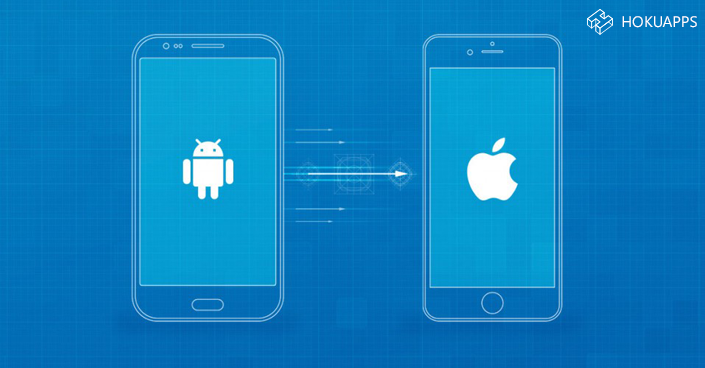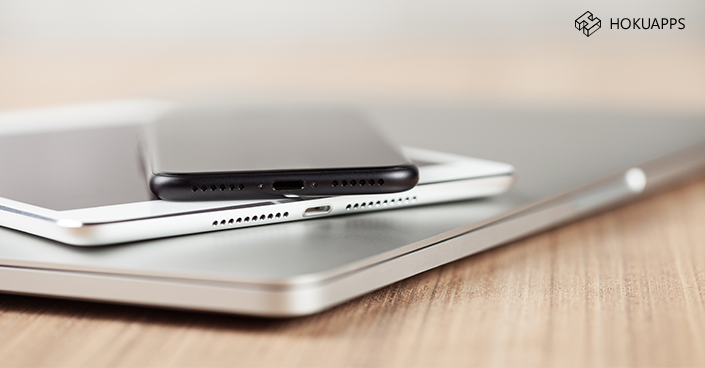- Products
- Solutions
- Services
- Resources
- Customer Success
- Company
- Sign In
- Contact Us

Digital Transformation enabler helping enterprises evolve by connecting technology
Take a look at upcoming webinars and special events
HokuApps news and media coverage
Be with the best. Solve real problems
Get in touch with our experts here
Explore our extensive collection of online resources here
Information and insight on transformation to the Digital Workplace
Quick Guides provide concise information on a variety of topics
Discover the essence of HokuApps’ products
Learn all about HokuApps’ cutting-edge enterprise mobility technology

App conversions across platforms happen for various reasons. It could take place because a business is targeting a wider audience, shifting its customer base, or is aiming to increase its return on investment (ROI). It’s always a struggle to decide which development approach to take, as both leading mobile application development platforms, iOS, and Android, have their advantages and disadvantages.
This is why, understanding the purpose of your business, and having a cohesive marketing strategy, will enable you to streamline the development process and help you look for specific expertise amongst agencies that can deliver an engaging, user-friendly application that is tailor-made to suit your business requirements.
One of the most pivotal stages in the process of developing a mobile app for your business is choosing a platform for your custom mobile application. Therefore, understanding the differences between the iOS and Android platform and understanding exactly what your business requirements are, is crucial before you start building your application, or decide to port an iOS app to Android or vice versa.
When looking to develop a custom application, a good place to start would be to hire iOS developers or the services of a mobile application development company. When converting an iOS app to Android, or the other way around, hiring the services of iOS developers or Android app developers greatly reduces the challenge of the task at hand. If you’re considering to port an iOS app to Android or to hire iOS app developers to a convert an iOS app to Android, then buckle up!

Porting an iOS app to Android or vice versa is a complex task that requires a good deal of expertise in mobile OS development and requires writing additional code. Laying down a structure for the app development or porting process enables iOS and Android developers to not only streamline the process but also make it more efficient.
Another important factor to consider when porting iOS apps to Android is the stark difference in design. Apple’s object placements, navigation, color, and even text alignment is hugely different from Google’s design. Even metrics like resolution and icon sizes are different. Android native apps have a flat design, while iOS native apps have a more material design. This essentially means that reusing the same code and design is not an option.
When convert iOS app to Android, the code can also prove to be a challenge, as most iOS applications are developed using Swift programming language, while Android applications use Java programming language. Both are however compatible with C-code which makes porting possible under most circumstances.
The web development and mobile application development market have grown exponentially over the past few years, and businesses are building apps to bring their products and services to a global customer base. Knowing exactly how you want your app to look and function is very important before diving into the mobile app development process so that it becomes easier to determine whether you need a native, hybrid, or cross-platform application.